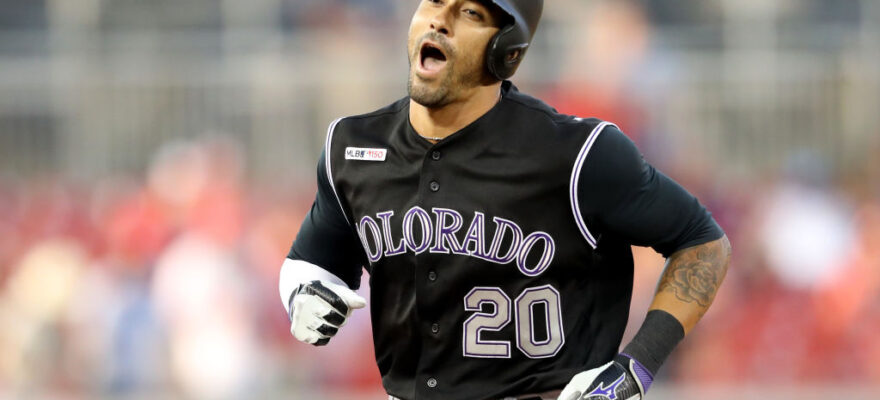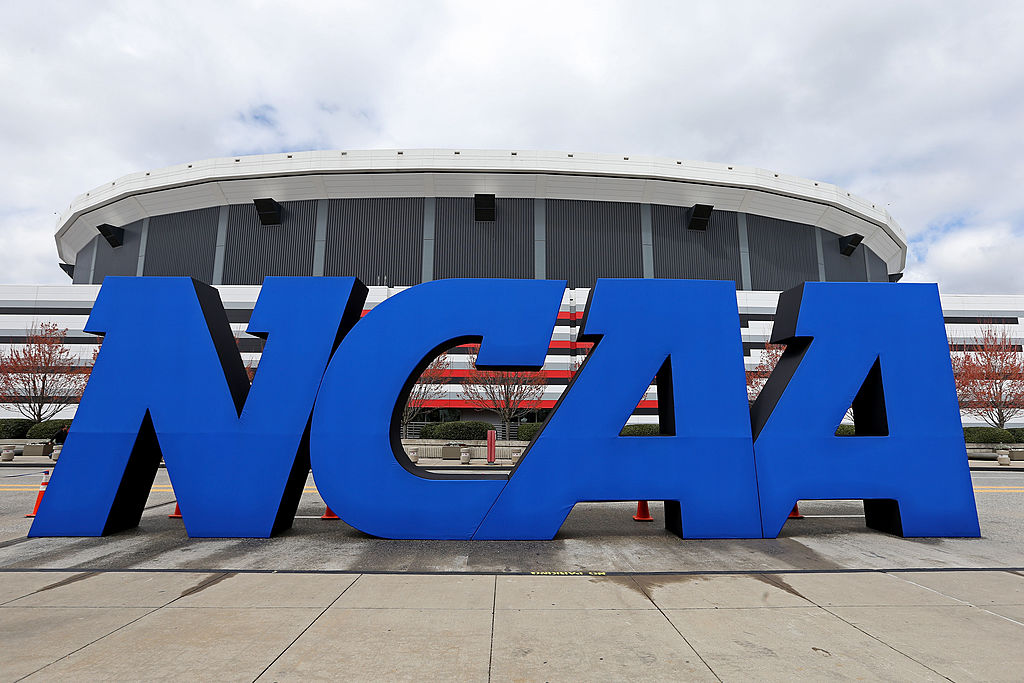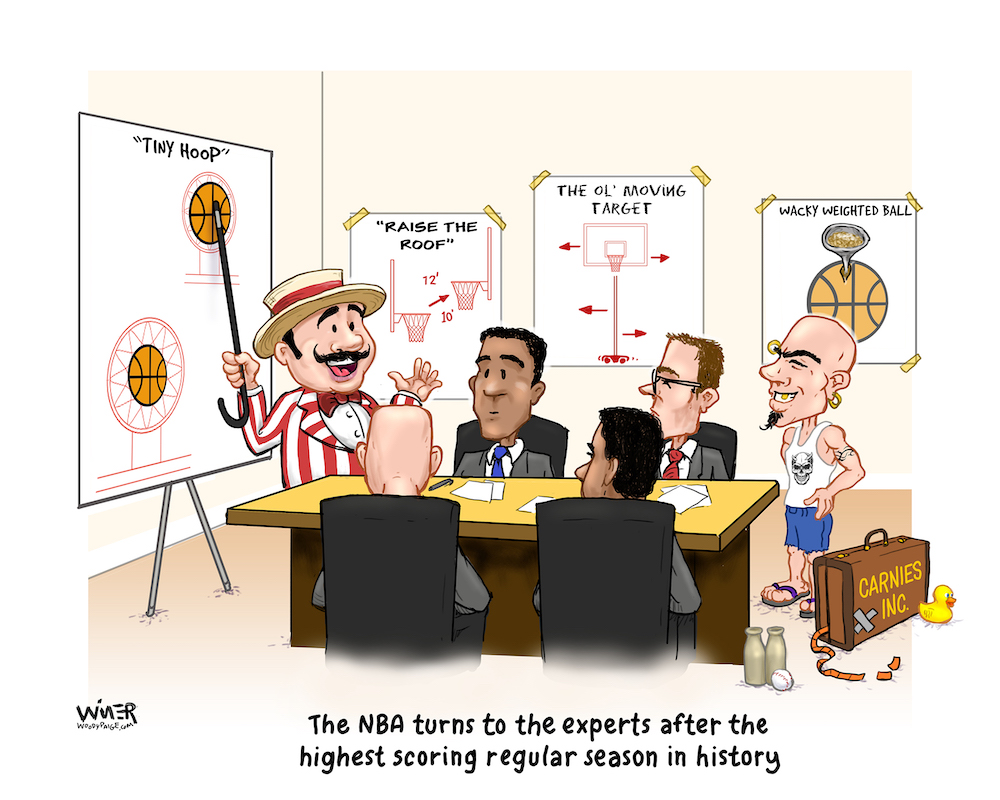It’s now been one full year since we all heard the news that Utah Jazz All-Star center Rudy Gobert had tested positive for the novel Coronavirus. It was like someone pulling out one blub on the Christmas tree. Everything suddenly went dark.
Over the past year, the entire world has suffered. Millions have gotten sick and lost their lives. It will take the better part of the decade to get past everything that’s happened and try to return to “normal.” It’s a tragedy like nothing any of us have ever seen or probably will ever see again.
Yet most of us have learned some valuable lessons, too. Things that we will no doubt continue to use as we move forward out of the darkness.
For example, it’s pretty certain that hand washing and even some measure of social distancing will continue to be part of our daily routines even after the all-clear is sounded. We seem to have found a way to limit the passing around of the common cold.
But something that’s also become “a thing” – which needs to end right now – is allowing for the process of “opting out.”
The idea behind allowing players to decline to participate in their upcoming seasons last year over health concerns was a sound one. Last year we didn’t know exactly what we were dealing with. We didn’t know exactly how to keep ourselves safe from the virus. It took a while for the idea of wearing a mask to catch on. We were kind of flying blind.
Since the first wave essentially began during spring training, Major League Baseball players were shell shocked. Given what they were hearing and reading, a good number of them decided to take a pass – to opt out – of what ended up being about one-third of a season so they could further protect themselves and their loved one from the risk. No one blamed them for that.
Many college and pro football players did the same thing. Even some NBA and NHL players elected not to participate when their leagues resumed play in a “bubble.” Giving the players that choice was clearly the right thing to do for the leagues, the conferences and the schools.

But like any good plan, eventually someone found a way to mis-use the “opt out” option. In December of last year, members of the Utah State football team “opted out” of playing their final scheduled game at Colorado State, and it had nothing to do with COVID-19. Players were upset at some of the things reportedly said by their Athletic Director about the religious faith of their interim football coach. So in retaliation, they used the opt-out – designed to allow players to choose not to risk their health during the pandemic – to get out of playing the game because they were mad.
The Mountain West Conference saw through this charade and ruled the game a forfeit.
You could have a little more sympathy for the New Mexico basketball team, which hasn’t been able to play or practice at home once all year due to COVID restrictions. An exhausted Lobo’s squad tried to “opt out” of a two game series with league leader San Diego State near the end of February, but since there were no positive test results involved in the decision, the league ruled those games as forfeits as well.
To this point, only a handful of players have used the opt out for their upcoming seasons. One who did, for the second year in a row, is Colorado Rockies outfielder Ian Desmond. In an eloquent statement posted on Instagram, Desmond simply stated that “my desire to be with my family is stronger than my desire to play baseball under these circumstances.”
Fair enough.
However, in real life, this kind of a decision is called “retirement.” Desmond’s decision should result with him being placed on the retired list, period.
From this point forward, all games where a team chooses not to play should be ruled forfeits. And all players who choose not to play should be considered retired. No more “opting out.”
With vaccinations increasing – including a new single-shot vaccine being made available – and the promise from the federal government that everyone who wants a shot will be able to get one by the end of May, the need to opt out simply no longer exists. Teams and leagues have learned the correct safety precautions. The number of athletes testing positive is in steady decline. Hopefully, soon all the participants in professional and collegiate sports will have been vaccinated.
While the risk of getting infected remains high, and safety precautions still need to be in place, we aren’t anywhere near where we were a year ago in terms of understanding what we can and shouldn’t do. We can play the games safely now. Soon, a good number of cardboard cut outs will lose their primo seats to real, live paying customers. Let’s hope those customers get to see all their favorite players come off the sidelines and get back into the game, too.
More from The Woody Paige Sports Network:
- Woody Paige: That time I played blackjack with Michael Jordan in Monte Carlo
- Atlanta Falcons lose by accidentally scoring a touchdown
- Woody Paige: Denver Broncos could become NFL’s version of New York Knicks
- Cartoon: 2020 settled the debate — Tom Brady was more important than Bill Belichick
- John Elway’s 7 best moments as General Manager of the Denver Broncos
- Woody Paige: Drew Lock still the most likely starting QB for Broncos in 2021
- Cartoon: Colorado Rockies — A dumpster fire like no other



















